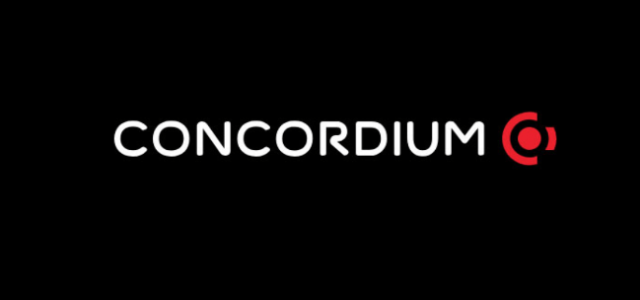Concordium. Made for the Future Economy
A blockchain that’s made for the real world – with private and public transactions. A blockchain that’s made for global adoption – with high throughput, fast transactions, and predictable fees. And a blockchain that’s made to be trustworthy – with layer one ID.
A lot has been said about the Concordum Blockchain, we decided to speak with the CEO of Concordium and find out what all of the buzz is about their blockchain and technology. Hope you enjoy.
Lone Fønss Schrøder, CEO of the Blockchain Company Concordium.
E-Crypto News
What´s the benefit of the use of the Concordium ID?
The Concordium Blockchain Wallet will hold any number of claims about the owner at the owner’s discretion. This is all off-chain and GDPR compliant and provides a legal identifier proved via the possession of a government-issued credential such as a passport. The claims can relate to all verifiable, personal information such as employment relationships, educational diplomas, etc.
Through rich APIs, application providers can request information from the wallet owner via Zero Knowledge Proofs and Verifiable Credentials, allowing for complete self-sovereign identification. In essence, this enables a wallet owner to control which information to give to whom and when – and even ensure the receiver can’t pass the information to a third party.
Every single transaction on the Concordium blockchain is related to a verified legal identifier which can be decrypted if legal action requires it. This helps businesses align with regulatory requirements and move to blockchain technology, safely.
Identity verifiers issue claims about users which can later be revoked by the same issuers, by the holder of the claim, or even by a third party. The actual permissions for controlling the life-cycle of a claim vary per type allowing for rich use cases. For instance, a proof of employment can be terminated by the company that employs a person or by the employee. Concordium’s solution even allows for self-issued claims in a safe and verifiable manner.
How can ID help the demand for decentralization applications?
Almost all interactions on Web3 today would be improved by being able to be sure about who your counterparty is – or being able to verify certain information about your counterparty like that you are above a minimum age, etc.
We believe that our ID framework with our privacy-oriented cryptographic is the key to unlocking the mass migration from Web2 to Web3.
Also, as our ID layer is built into the protocol of layer 1, anyone building on top of our chain will benefit from the ID framework and won’t be needing to build solutions on top of their Dapps.
How does Concordium facilitate compliance in the crypto space?
Governments and regulators are increasingly focusing on anti-money laundering, tax evasion, and the protection of users. Therefore we can expect an increasing need of identifiable issuers and users.
Concordium offers a unique ID layer at the protocol level which ensures that every user is associated with a real-world identity that has been verified through a 3rd party ID provider. By leveraging zero-knowledge proofs, Concordium is able to provide users with full privacy while using the blockchain, but still ensures accountability thanks to the option of ‘revocable’ anonymity.
What does the Concordium built-in ID-layer at the protocol level entail?
Concordium’s Identity Layer at the protocol level offers transactional privacy whilst allowing accountability to relevant regulators.
To participate in the network, users need to create an identity object using an identity issuer of their choosing. This ensures that every wallet is associated with a real-world identity. By leveraging zero-knowledge proofs, Concordium is able to provide users with full privacy while using the blockchain, but still ensures accountability for regulators.
The user’s identity object is fully private, and the only way to lift the anonymity is via a highly formal legal process with a third-party Anonymity Revoker.
How does Concordium strive to solve the quadrilemma of scalability, security, decentralization, and regulation?
When it comes to regulation of a decentralized project, where you don’t have a central or identifiable issuer, it is fundamental to find a way to assure accountability for the parties participating in the network and that’s what our ID-layer enables.
Where do you see your blockchain in the coming 5 years?
The Concordium blockchain is designed to meet the needs of enterprises; this includes the quality of the coding, based on peer-reviewed scientific papers. This is important for security so that the protocols don’t break. The finalization layer is also important. It allows finality in a matter of seconds and hinders transactions to roll back. We have low and predictable transaction fees peeked to the EURO and the ID layer. We strive for being one of the leaders among providers of decentralized blockchains. Bridging the gap between the real world and virtual experiences is also an interesting step for companies and is opening up totally new business models supporting new platform technologies which the use of decentralized blockchain and Web 3 offers.
How is Concordium’s governance structure different from other blockchains?
Governance is not a trivial matter. The long-term governance model towards decentralization is under development and here, as for other parts of the tech stack and tokenomics, we build the models based on science from the world’s absolute top universities. The matter is further discussed by our advisor Professor Hans Gersbach, ETH in this short video:
The Science Behind Blockchain Concordium Governance
How does Concordium interoperate seamlessly with other blockchain networks?
We are currently working on bridges starting with an Ethereum bridge, which is the beginning of Concordium’s multi-chain interoperability. Our plans are to scale across the global blockchain ecosystem, enabling anyone anywhere the power to create and convert digital assets.
Why is the ID layer important in the governance of the blockchain world?
Being able to identify yourself is a prerequisite for creating trust between parties. You want to be able to know who you are transacting with or prove various factors. This is what our ID allows for.
Why is anonymity revocation important for blockchain networks?
We live in a respectful world, a world dependent on trust and accountability. Anonymity Revokers exist to ensure accountability.
Concordium’s Anonymity Revocation process ensures that responsible organizations can trust that they are safe when interacting with addresses on the Concordium, as everybody in the network is identified and if, and only if a court order requires so, then everybody who has transacted can be identified.
By way of a second Court Order, served on the Identity Issuer, the identity of the user can be revealed. It is the requester who is required to serve the two court orders on the Anonymity Revoker and the Identity Issuer.
What projects are similar to your blockchain and are there any future plans to partner with them?
There is not another Layer 1 Blockchain with an ID layer at the protocol level and we strive to develop our ID framework as a service to allow collaboration with other projects.
What is blockchain bloat and how can one avoid it?
All data on the blockchain is replicated among all nodes maintaining the system.
This means it becomes more difficult to efficiently run a node when the blockchain size grows to the extremes. To combat this bloat, one should follow the design mantra “the blockchain is not your cloud storage”.
Instead, the blockchain should be used primarily to order messages. The actual data is outsourced, e.g. into specialized storage providers, using e.g. rollups.










